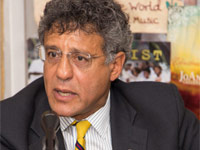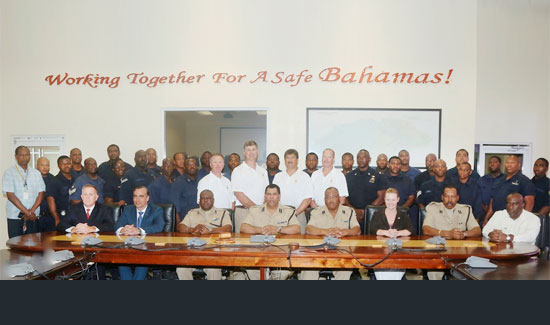On Thursday, Michel Chossudovsky, professor emeritus at the University of Ottawa, was invited to appear on the Mesa Redonda television program. He participated along with Osvaldo Martinez, director of the Research Center on World Economics.
Of course, I listened to their debate with particular interest. Chossudovsky spoke in Spanish and showed a complete command of the issues at hand. He is scrupulous about the meaning of words, including phrases coined in English to precisely express a certain idea when they do not have equivalent terms in Spanish.
Chossudovsky said that in the United States an inescapable systemic crisis has been created, which they are trying to resolve by employing the same measures that caused it. He explained that there has been an impoverishment of all social groups, which affects the workers and middle class much more than the rich. The U.S. government is calling for austerity measures at a global level, and applying “remedies” and “prescriptions” that were the cause of the crisis, faced with the necessity of financing military spending and bailing out banks.
He confirmed that they have been preparing for war against Iran since 2003, and are also threatening Russia, China, North Korea, Syria, Lebanon and other countries in this vast region.
He energetically criticized the justification for the introduction of the so-called mini-nuke among the arsenal of tactical nuclear weapons, and of the doctrine that was widely promoted prior to their introduction, in an attempt to argue that the mini-nuke is safe for civilians (safe for the surrounding civilian population, in English, he explained). He noted the irony of how the mini-nukes included bombs that fluctuated between one-third and six times the power of that which destroyed Hiroshima.
Let us press on immediately with the synthesis of Chossudovsky’s academic address to the students and teachers at the Faculty of Economics, University of Havana:
“… I want to mention one thing that is very important […] this war is not a war that creates jobs […] It is true that the Second World War did create jobs, in Germany under the Nazi regime […]. That is simply a factual observation. […]
The same in the United States at the beginning of the Second World War, which started for them in 1941; there was job creation and that was the way out of the Great Depression under President Roosevelt. But this war (referring to a Third World War) is not the same type; it is a high-tech war, not a war of military equipment assembly. The war in Viet Nam created jobs, as did the Korean War. This war is a war characterized by a very sophisticated weapons system, employing highly advanced scientific manpower, engineers and the like …”
Read the full “Reflections by Comrade Fidel” (228 KB PDF)



